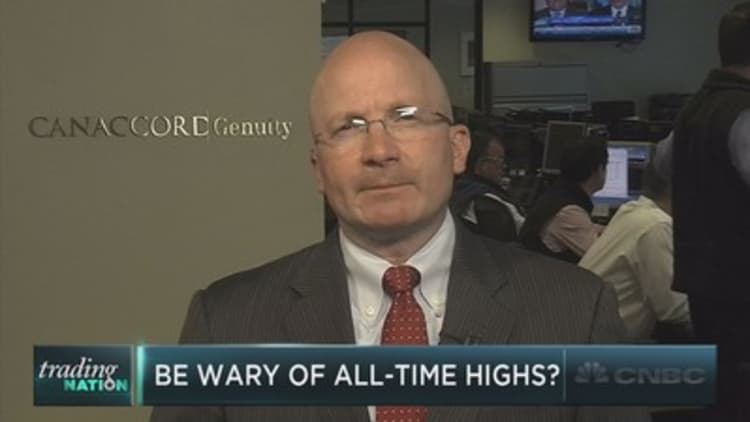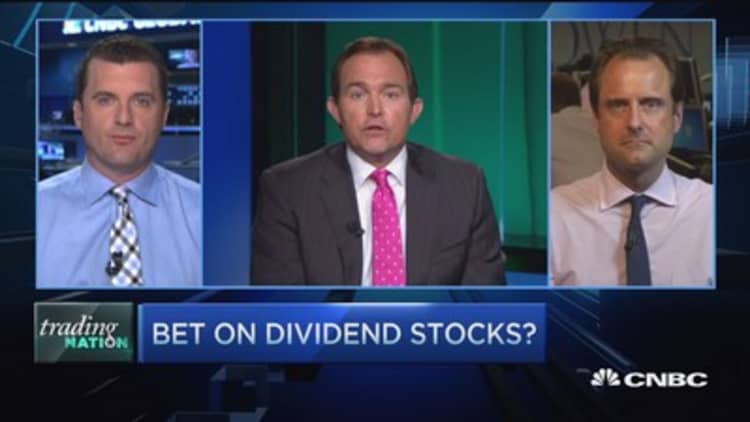


The and Dow Jones industrial average are trading at all-time highs. But rather than cheering the records, bullish equity strategist Tony Dwyer of Canaccord Genuity says they actually give him pause.
After markets hit fresh records, "you just want to wait a little bit to be more aggressive," he said.
And it's not acrophobia—the facts back up his reticence.
Examining recent market history, Dwyer found that "over the last year and a half, initial new highs in the S&P 500 have led to better buying opportunities in the market. The average drawdown after the S&P made a new high is 3.7 percent."
That is, looking at recent instances of new closing highs, Dwyer found that they tended to be followed by a drop lasting an average of 36 days. The worst of these dips, in August, took stocks down 6.5 percent. Meanwhile, the mellowest, in April, saw the market consequently fall 1.7 percent.
Either way, Dwyer's message is clear: Traders should avoid the temptation to chase splashy records.
"It's not that you want to think about getting out of the market to protect yourself, it could be the top, blah, blah, blah," he said Monday in an interview with CNBC's "Trading Nation." "What it comes down to is, you just want to open up a little bit of cash. … We want to be able to take advantage of any kind of correction as it plays out."
The last thing investors should do, Dwyer says, is turn their backs on stocks completely.
"In a bull market that's fundamentally driven, it's not whether you should be a buyer. It's where you want to be a more aggressive buyer," he said.
Read More The two stocks that could help the Dow reach 20,000
Even the potential for a Federal Reserve rate hike doesn't worry him—quite the contrary. Since the Fed move is likely to hurt bond prices given that they move inversely to yields, and to hurt commodity prices by sending the dollar higher, investors who need to earn decent returns will find themselves rather boxed in.
"It's math," he said. "Pension plans have to make 7.5 percent. It's hard to do that when bonds are going against you, commodities are going against you, and the only real asset category that isn't totally valued is stocks."
Want to be part of the Trading Nation? If you'd like to call into our live Monday show, email your name, number, and question to TradingNation@cnbc.com.







